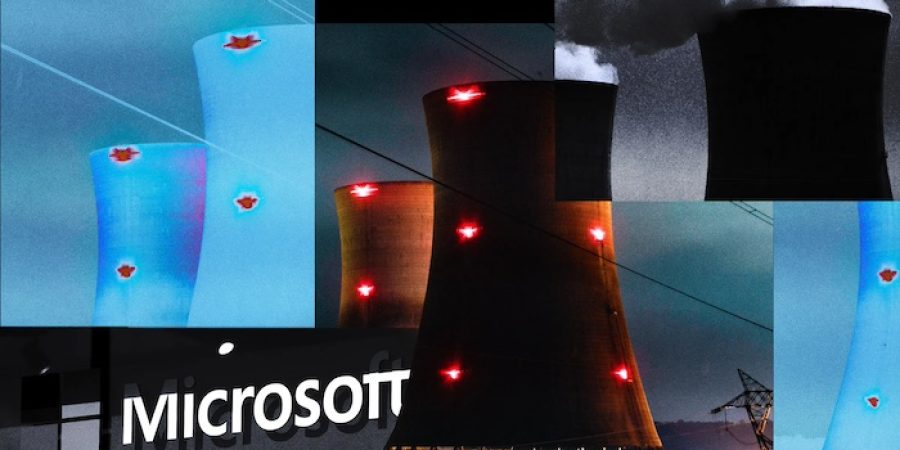Tech giants like Microsoft and Amazon are set to bet on nuclear power to meet their clean energy needs as data centers’ energy consumption to triple by 2030, but the ambitious plan has faced significant challenges, from regulatory hurdles to public skepticism.
However, the path to widespread adoption of nuclear for data centers is fraught with hurdles.
Microsoft’s deal with Constellation Energy to restart Unit 1 at Three Mile Island marks a significant development.
Constellation CEO Joe Dominguez sees nuclear as the only option that offers both the climate-friendly nature and reliable output needed for Big Tech’s massive energy requirements.
This view implied that renewable sources like wind and solar, while clean, might struggle with consistency.
Amazon’s earlier purchase of a nuclear-powered data center further underscores the tech industry’s interest in nuclear power.
The need for clean energy solutions is driven by the skyrocketing demand for data center power.
Estimates suggest a tripling of data center energy consumption in the US between 2023 and 2030, requiring a staggering 47 gigawatts of additional generation capacity.
Investors and regulators are understandably concerned about the potential environmental impact of this growth.
The rise in data center energy use must not come at the expense of increased greenhouse gas emissions. Here’s where the challenge with nuclear power comes in.
Microsoft and Constellation face a complex task. “Nobody has done this before,” acknowledges Kate Fowler, a nuclear energy expert.
The legacy of the 1979 partial meltdown at Three Mile Island Unit 2, the worst nuclear accident in US history, adds further weight to these concerns.
While the planned restart involves Unit 1 which operated safely for decades, the $1.6 billion project and its 2028 target completion date highlight the significant challenges involved.
The tech industry’s interest in nuclear power for data centers reflects a desire for clean and reliable energy solutions.
However, regulatory hurdles, potential fuel supply limitations, and public opposition pose significant challenges to widespread adoption.
The Three Mile Island restart, while groundbreaking, serves as a reminder of the complexities involved in this potential solution.
Boluwatife Enome
Follow us on:



